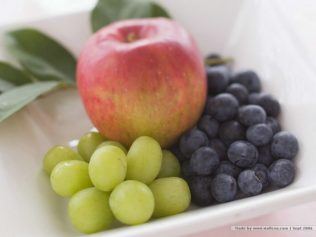Should we take vitamin and mineral supplements, are they a complete waste of money, do they do more harm than good? These are questions millions of people around the world ask, probably because there are so many conflicting studies.
The answer to “Should I take vitamins?” is not a simple yes or no one, says Stacey Zawacki, a Sargent College clinical assistant professor and director of the Sargent Choice Nutrition Center, at Boston University.
Zawacki explains that “everyone is unique”. She says that the health care professional, usually a registered dietitian, needs to find out what the individual’s nutritional needs are, their food preferences, health goals, and other factors.
Over half of all Americans take dietary supplements – the percentage of Americans who took vitamin and/or mineral supplements grew from 40% in 1994 to 53% in 2006.
When asked whether she takes supplements herself, Zawacki says she does not, but emphasizes that whether or not she takes them really is irrelevant. Taking supplements is a personal decision based on an individual’s knowledge about their needs, their diet and life stage.
People who are wondering whether they should take vitamin and/or mineral supplements should check with a registered dietitian. The hour-long consultation will definitely cost a great deal less than what the majority of people spend on tablets and capsules over a 12-month period.
Patients with high blood pressure, diabetes, and other diseases driven by dietary factors may well have health insurance cover for counseling.
Zawacki says “What I do as a first step, is ask, ‘What are you currently eating?'” This is followed by a close analysis of the client’s diet, and checking where deficiencies may exist. If one is identified, for example, the person’s vitamin E intake is lower than what is recommended by the Institute of Medicine, before recommending vitamin E supplements, she will advise adding spinach, sunflower seeds, almonds and other vitamin-E-rich foods to their diet.
Adding foods with high targeted nutrients rather than supplements also provide the patients with protein, fiber, and other nutrients. There is no tablet or capsule that contains all that, Zawacki explained.
No tablet contains vitamins, minerals, fiber, protein, and other essential nutrients
Some foods are rich in a wide range of vitamins and nutrients
Spinach – rich in iron, potassium, vitamins A, C, E, and K, and magnesium.
Blueberries – these berries are an antioxidant “super food”, rich in phytoflavinoids, vitamin C and potassium. Apart from lowering your risk of cancer and heart disease, they also reduce inflammation.
Sweet potatoes – rich in vitamins A, B6 and C, fiber, potassium, carbohydrates, and carotene (the pink, yellow ones).
Sweet potatoes are rich in several important nutrients and fiber
Oily fish – rich in omega-3 fatty acids. Examples include salmon, herring, sardines, tuna and mackerel. They help arthritis and lower the risk of heart disease, memory loss and possibly some of the symptoms of Alzheimer’s disease. Walnuts, flax seeds and fortified eggs are also rich in omega-3s.
Wheat germ – part of wheat that germinates and grows into a plant; the seed’s embryo. Unfortunately, during food processing when cereals are refined, the germ and the bran are often milled out. Wheat germ is high in folate (folic acid), thiamin, zinc, magnesium, phosphorus, fatty alcohols, fatty acids, and vitamin E. It is also a great source of fiber.
Avocados – very rich in B vitamins, as well as vitamins E and K. Studies have shown that regular avocado consumption can reduce blood cholesterol levels. Do not avoid avocados because they are high in fat – avocados contain monosaturated (good) fat.
Oats – oats are rich in B vitamins, potassium, folate, fiber, and complex carbohydrates.
Read More: Stacey Zawacki, medicalnewstoday.com

